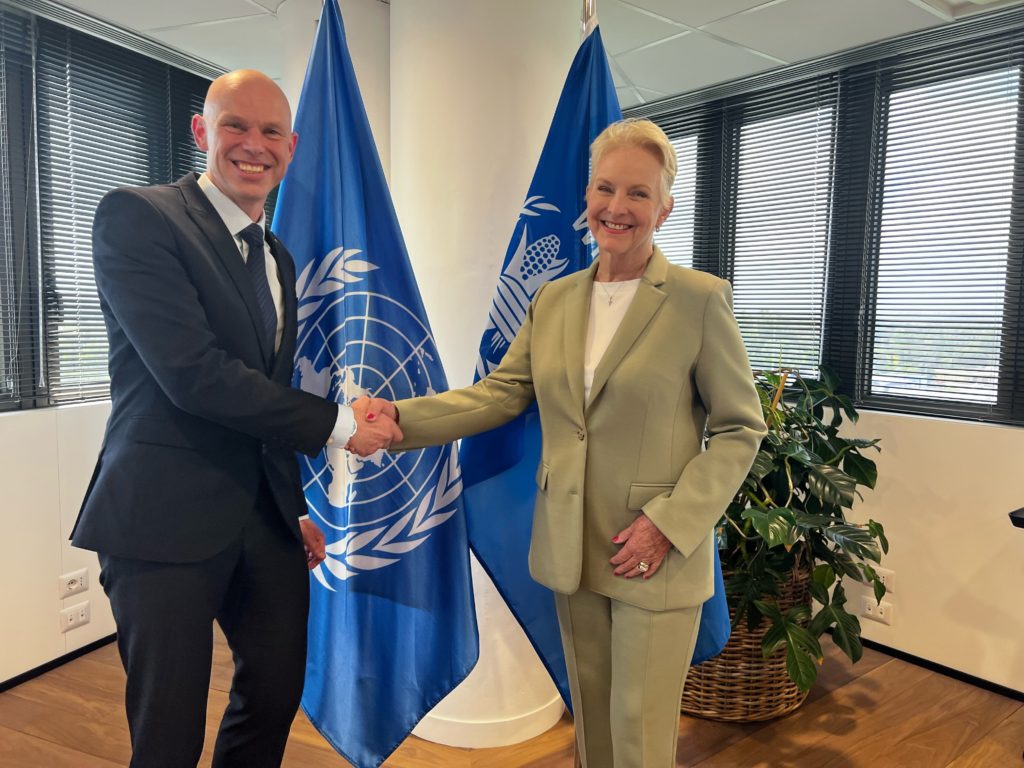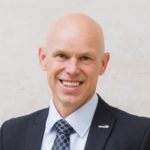Challenging and changing safeguarding culture for good
As the outgoing UN champion on PSEAH, CHS Alliance member World Vision’s Andrew Morley shares his thoughts on putting victim/survivors at the very heart of our approach and protecting people affected by crisis from harm.
In this blog, he highlights World Vision’s commitment to prioritising the safety of those it supports and sets a powerful example for the broader aid community.
Protecting those we serve from harm and abuse is at the very core of who we are, and what we do. But living out this vital promise of protection is way more than a declaration pinned onto the wall, a policy document or a strapline on a website. It requires action – very real, robust and immediate steps taken by all of us.
First, it requires us to think the unthinkable. Knowing how to prevent and respond to every incident of abuse from aid workers means we must first accept the heart-wrenching reality that it happens.
No-one is immune to this reality; and neither are we. We have to openly talk about it.
And it requires everyone who works in, and for, our sector to know that we do not tolerate sexual exploitation and abuse, and that each individual has a responsibility to prevent and report incidents. This means proper training, and re-training for every leader and staff member. No exceptions, no excuses.
For the past two years, I have served as Champion for Preventing Sexual Exploitation, Abuse and Sexual Harassment (PSEAH) at the Inter-Agency Standing Committee (IASC) – the top decision-making body on humanitarian affairs at the United Nations (UN).
This was the first time the UN’s championship on PSEAH has been led by an international non-governmental organisation – a key opportunity for humanitarian organisations to drive toward the change we want to see.
We are advocating for victims and survivors to be at the forefront of efforts. We have increased the number of staff dedicated to PSEAH across the world. And we are striving for significant culture change on this right across the sector.
My tenure has just come to an end on this, and I recently handed over the championship to Cindy McCain, Executive Director of the World Food Programme. We know there is still much more to do, and I remain committed to making World Vision a beacon of excellence in our sector.

Andrew Morley and Cindy McCain. Credit: World Vision
We intend to make safeguarding World Vision’s number one priority and are working to embed this in the DNA of our organisation, such as by appointing safeguarding experts in our national, regional and global offices. We are moving beyond compliance to culture change, bit by bit.
A central tenet of this work is to ensure that the dignity and well-being of survivors of abuse remain top of mind in our response to safeguarding violations. They must always feel safe, supported and informed in reporting and in the response.
The following are best practices that World Vision is adopting, which we hope will become standard practice for all humanitarian and development organisations:
- Create policies and systems to prevent and respond to harm.
- Ensure there is strong capacity at the community and country levels to respond through informed and trained staff. This takes ongoing commitment and is not a one-off event.
- Raise awareness of the importance of safeguarding and how to respond with all staff. World Vision is leading its second week-long Safeguarding Awareness Campaign that will include staff reflections, practical examples and ways to respond.
- Ensure that staff feel safe to report incidents and can do so simply and easily. Reporting is a sign that the mechanisms in place are working. Those who do report must feel valued.
- Leaders must set the tone at the top and create opportunities for transparency, vulnerability and honesty. Sharing our learnings and failures is part of the growth journey to stamping out safeguarding issues.
- Provide ongoing and consistent messaging about the importance of survivors’ rights.
- Proactively engage communities and partners, including faith leaders, to talk about safeguarding in safe and appropriate ways.
Organisations can strengthen their internal “speak up” culture while also advocating for changes at the global level. Working together, we can spark authentic conversations that spur transformation in the humanitarian industry as well as other sectors. Let’s continue to share our approaches with one another and work together to make a real difference in changing safeguarding culture for good.
Andrew’s original blog was published on World Vision’s website on 2 February 2024.
Learn about CHS Alliance’s work to prioritise the well-being and rights of victims/survivors of SEAH.

